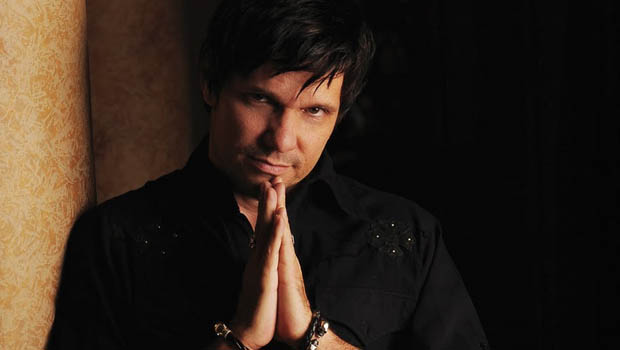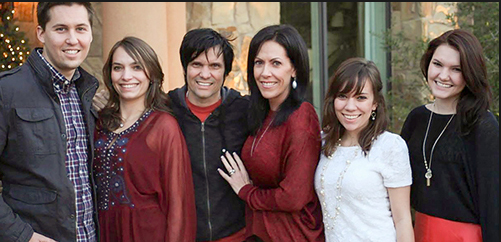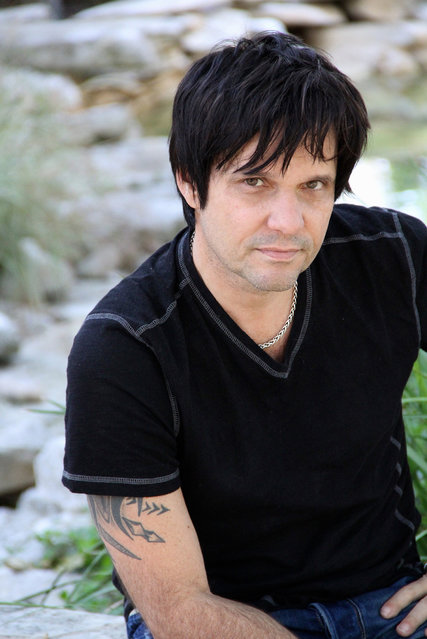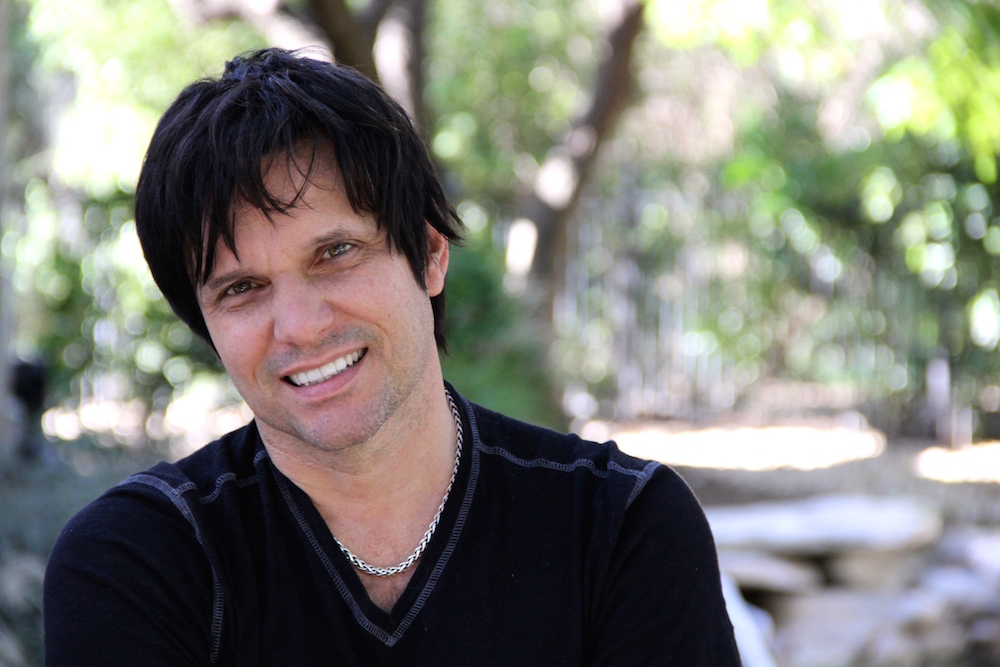 By Hosea Ashcraft and Mark Ellis
By Hosea Ashcraft and Mark Ellis
When his parents were missionaries among the cannibals in Kangime village, little Ted Dekker ran barefoot through the jungle, a free-spirited “jungle boy” among the Indonesians.
As a college student of religion and philosophy at Evangel University, he hated most everything about America. “I saw America as so abnormal. I had it so good living in the jungle. When I came back to the U.S. for college, I was completely against capitalism. I was extremely liberal in my political leanings. I was against anything American, and as soon I was out of college, I was ready to head back.”

Eventually the New York Times best-selling author finally adapted. While living in Colorado Springs, he cranked out many of his more than 35 novels that have sold more than 10 million copies, the most popular of which are Thr3e, Obsessed and the Circle Series. Two of his novels have been turned into movies. He writes macabre thrillers more akin to Steven King than Frank Peretti, yet the Christian themes are seldom obscured.
This was not always the case, however. Studying for a bachelor’s degree in religion and philosophy at college in Springfield, Missouri, he sided with existentialism, the modernist philosophy that denies the existence of everything except self (it especially trains its guns on the existence of God) and unbridles each person to formulate his own morality.
 In Dekker’s own word, he became “post Christian.”
In Dekker’s own word, he became “post Christian.”
“I lost what faith I had, which is liberating at first but then hopeless,” he told the Austin American Statesman.
He worked in corporate American and then launched out as an entrepreneur. At nights he worked at his beloved childhood hobby of writing. It turns out that while his parents made evangelistic forays to surrounding villages in a remote part of Indonesia (now West Papau), Dekker would stay home and write.
In the course of writing and living life, Dekker found that he couldn’t drift far from the Savior of his parents.
“We never lose our faith. No one loses their faith. Everyone has faith,” he told the New York Times. “The question is: What is your faith in? Is it in the storms of this life? Or is it in the peace outside the storm? Is it in success as seen by the world, or is it in something else? In my journey while writing this novel, I discovered a new kind of faith in a power beyond the power of the storm.”
He now lives in Austin with his wife and one adult daughter. Three other children live on their own. Dekker has come a long way since growing up in the perilous jungles among headhunters.
“We didn’t find this out until later, but for the first two years the people couldn’t decide whether or not to kill us because they thought we were evil spirits because our skin was white,” he said. As their lives were being weighed in the balance, ultimately God had their backs.
 “I grew up in one of the darkest places in the world you can imagine,” he told CNN. “In the jungle, with cannibals. I know we have certain images in our mind when we talk about cannibals, but we’re talking about animism, heavy spiritualism, tremendous amounts of fear. Co-workers of my parents were killed and eaten by cannibals. You were at threat of losing your life at any moment.”
“I grew up in one of the darkest places in the world you can imagine,” he told CNN. “In the jungle, with cannibals. I know we have certain images in our mind when we talk about cannibals, but we’re talking about animism, heavy spiritualism, tremendous amounts of fear. Co-workers of my parents were killed and eaten by cannibals. You were at threat of losing your life at any moment.”
Parents John and Helen Dekker served for years in Indonesia.
“My parents brought into that very dark and ominous setting hope, light, penicillin, hygiene,” he said. “The culture changed dramatically, not as a result of Christianity — at least not upfront — but as a result of them bringing into a very dark place hope and light. My stories reflect that paradigm shift.”
He and his brother, Danny, felt at home among the native people. In fact, it was when they came back on sabbatical every five years that they felt out of place.
Studying the fifth grade in the U.S. he remembered, “I felt so alien. I didn’t feel like I belonged here at all; then you don’t feel like you belong anywhere.”
The loneliness and evil lurking in his childhood plays out in his novels. He doesn’t candy-coat evil or use euphemism.
“It’s critical that we use a very dark brush to paint evil,” Dekker told CBN. “When you bring the light into that darkness as characterized in John 1, that light is very vivid. When it dispels the darkness, we see the brilliance that’s there.”
While edgy thrillers, his books reveal salvation in no uncertain terms.
“When I sit down to write a novel, I am exploring my own relationship with God, with the struggle between good and evil, my own purpose,” he said. “My journey is so similar to everyone else’s journey, because we all are human. We all have been defeated by the powers of darkness, and we all find redemption in the light of Christ.”
Read about the Don Richardson and the Peace Child with the Sawi, about the Kanyak, about Borneo Bob
Hosea Ashcraft is a student at the Lighthouse Church School in Santa Monica, California.



